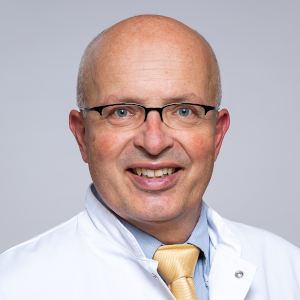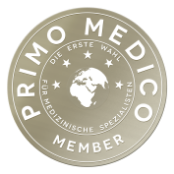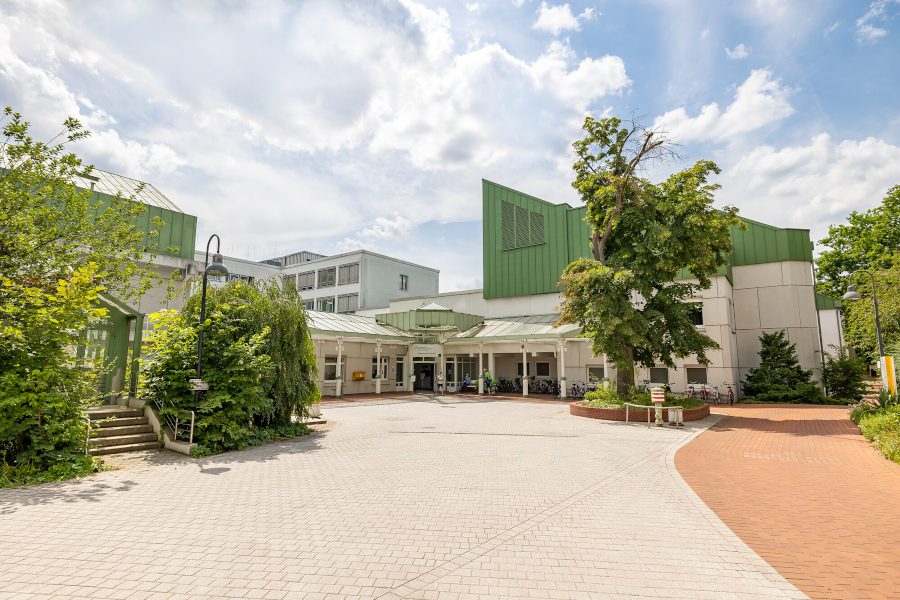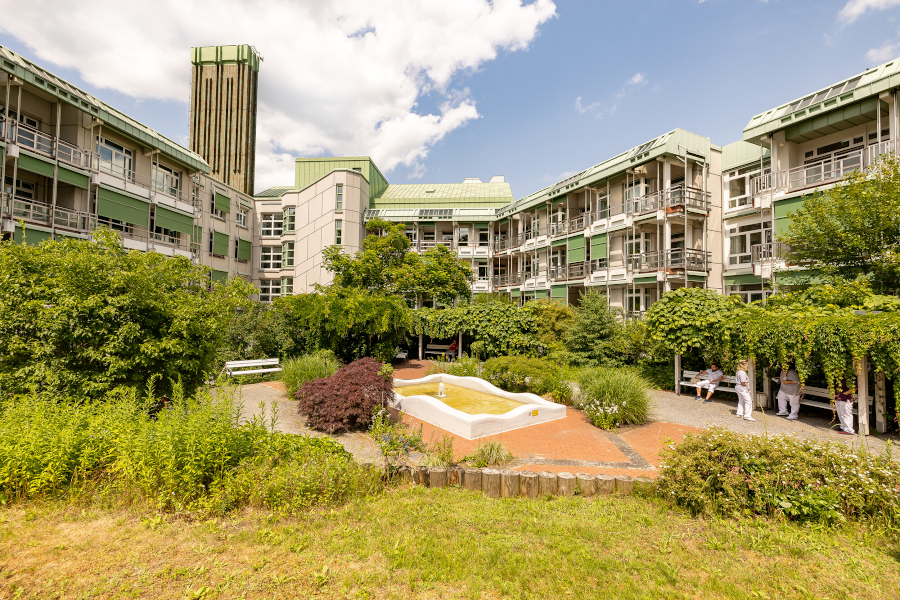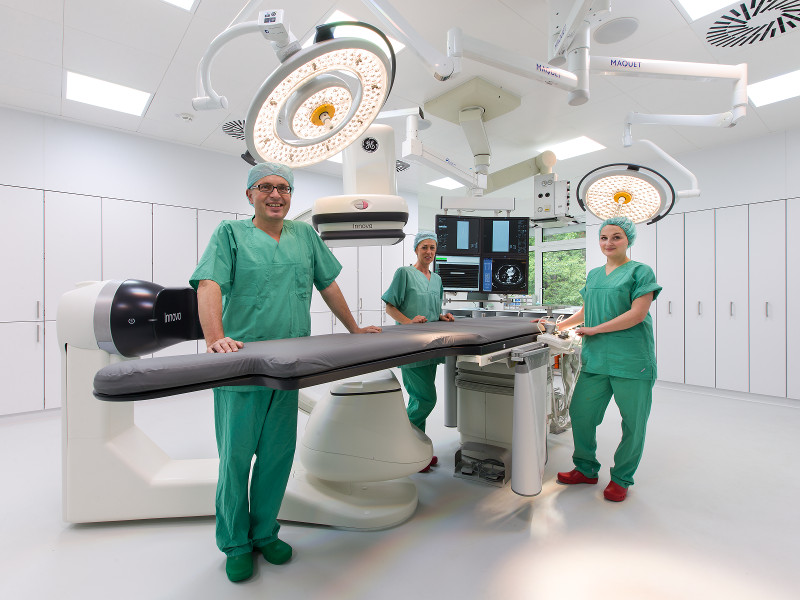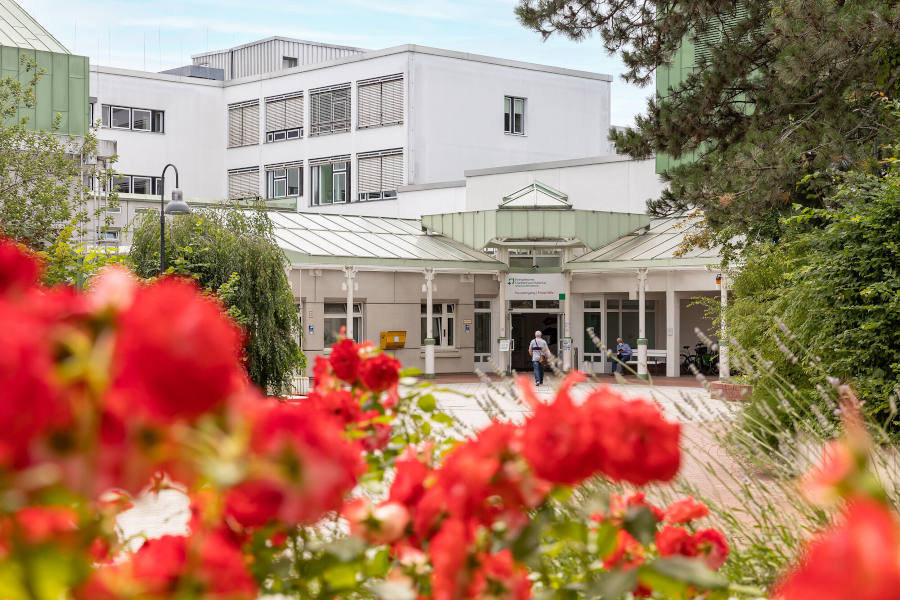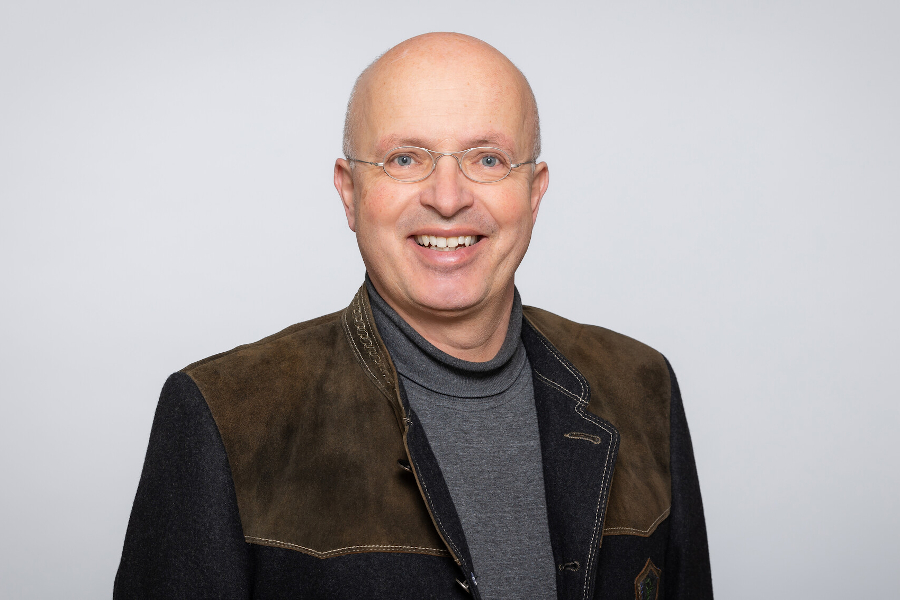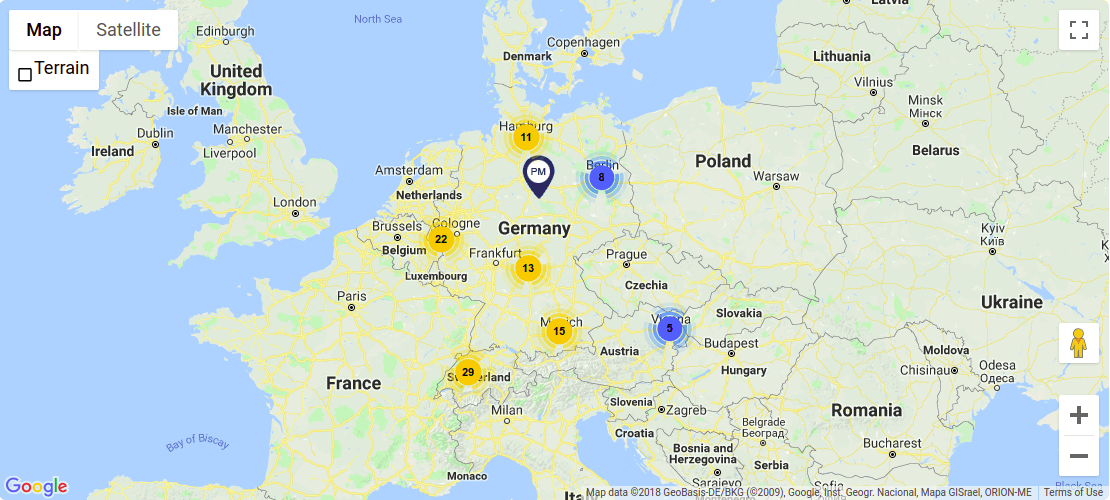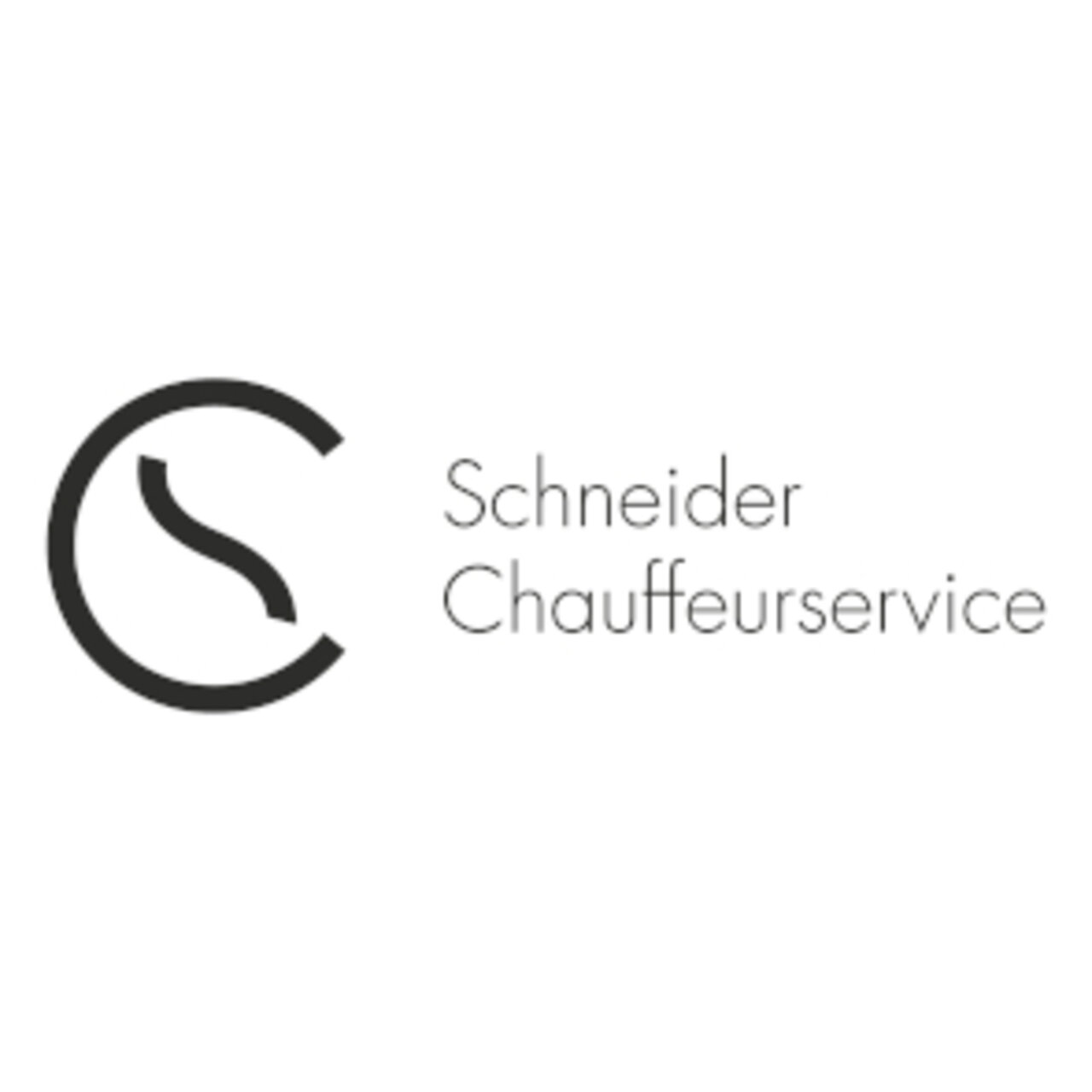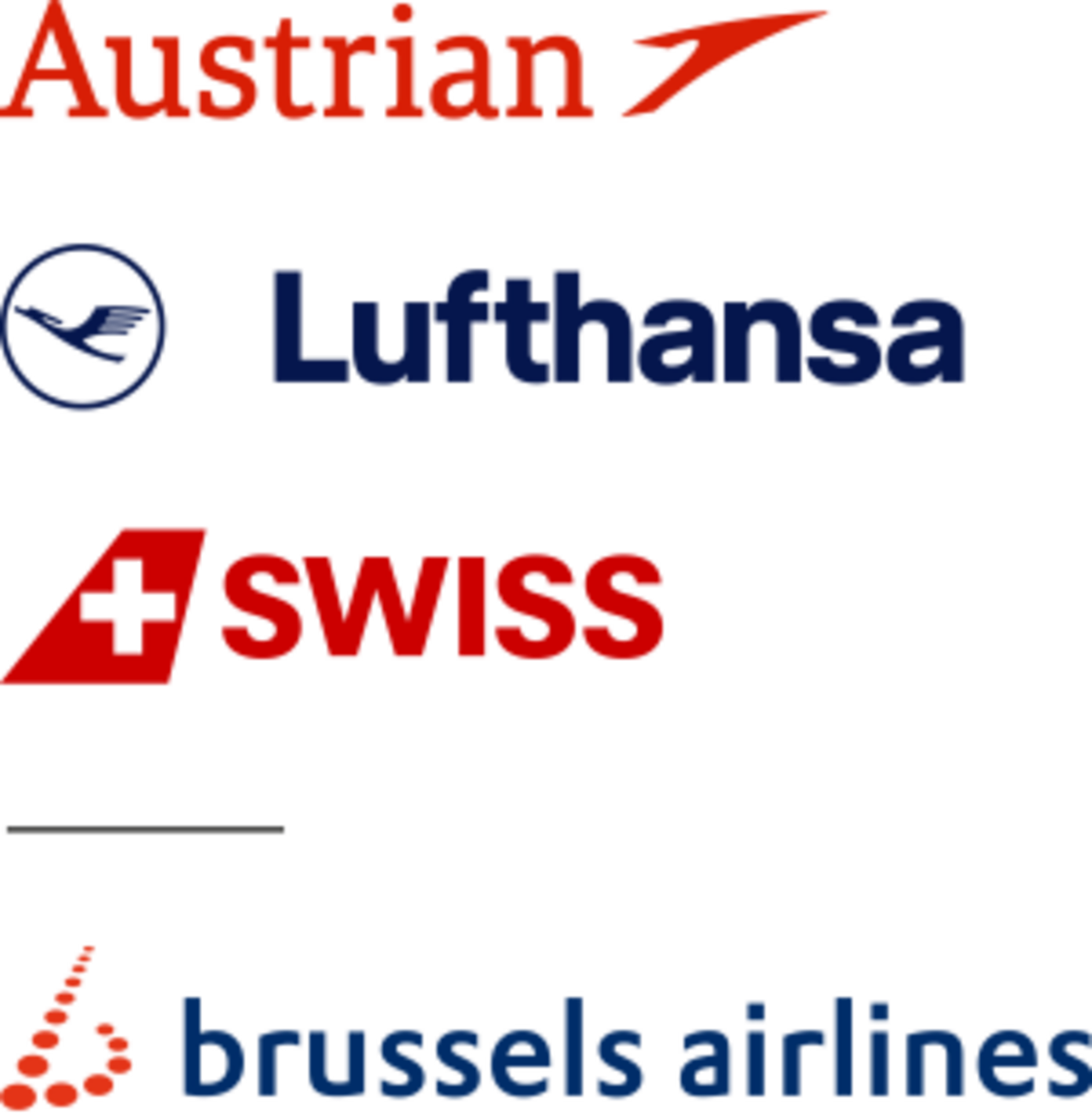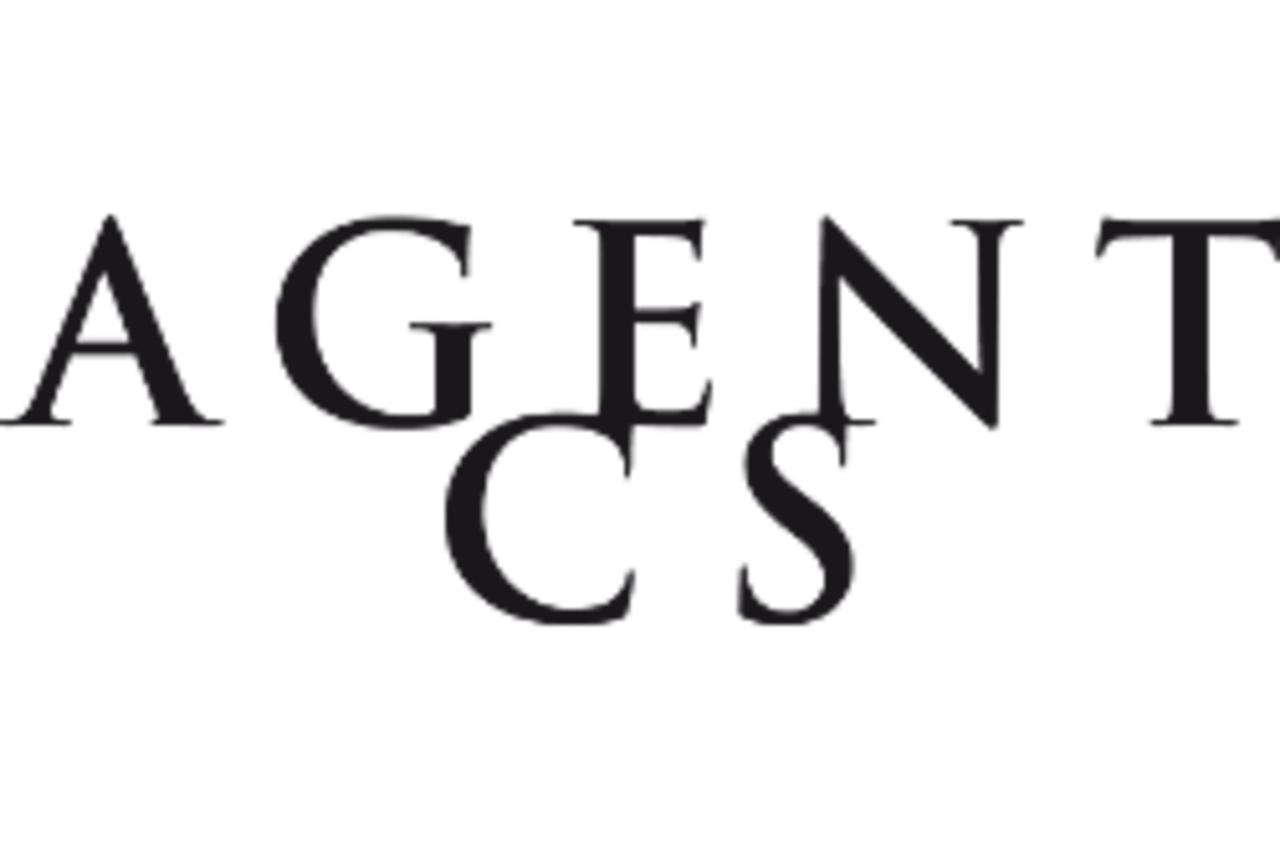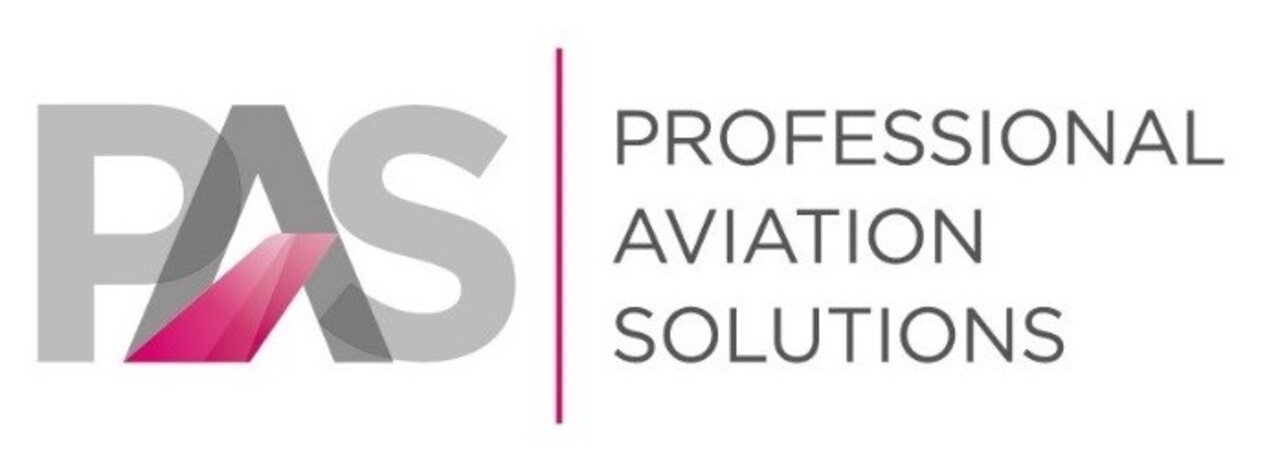Vascular Surgery Specialist in Berlin
Treatment focus
- Diseases of the main artery/aorta (e.g. aortic aneurysm, aortic dissection, aortic rupture, perforated aortic ulcer, etc.)
- Carotid stenosis (narrowing of the carotid artery) as well as all other neck and shoulder-arm vessels
- Circulatory disorders of the legs (peripheral arterial occlusive disease (PAOD) / intermittent claudication disorder, diabetic foot syndrome (DFS))
- Varicose veins / venous disorders (e.g. chronic venous insufficiency (congestion syndrome), ulcerated legs, spider veins, venous thrombosis of the legs)
- Dialysis access surgery (safer vascular access (shunt / Hunt dialysis system or catheter) for implementing dialysis, e.g. given chronic kidney disease and kidney failure / kidney insufficiency)
Contact
Evangelisches Krankenhaus Hubertus
Vascular Surgery and Endovascular Therapy Clinic, Vascular Centre Berlin-Brandenburg
Spanische Allee 10-14, D-14129 Berlin
P: +49 30 2647 9374 F: +49 30 81008 188
Consultation Hours:
Monday - Friday 07:30 - 15:00
Medical Range
Range of Diagnostic Services
The Evangelisches Krankenhaus Hubertus contains everything that is relevant medically for vascular conditions in terms of diagnostic procedures.
- CT incl. Angio-CT (computed tomography)
- MRT incl. Angio-MR (magnetic resonance imaging)
- DSA (digital subtraction angiography)
- Duplex sonography (colour and contrast agent supported)
- Doppler sonography
- Oscillo-Doppler
- Ankle pressure measurement
- Peripheral oxygen measurement
- Treadmill examination
All vascular diseases can be diagnosed with the most modern methods in a manner that is easy on the patient.
Diagnosis examples:
- Diseases of the aorta (main artery): e.g. ultrasonic aorta screening for early detection of aortic aneurysms
- Varicose veins / venous disorders: e.g. duplex sonography (ultrasound), venous occlusion plethysmography (testing vein function), phlebodynamometry (measurement of venous pressure, testing venous valve function)
- Vascular calcification (atherosclerosis): e.g. anamnesis (patient survey), vascular sonography with colour Doppler (ultrasound), examining blood flow / constrictions in blood vessels
- Peripheral arterial disease ("intermittent claudication"): e.g. via Doppler pressure measurement (examining blood pressure in the vessel course), vascular sonography (ultrasound), radiological examinations (MRI, digital subtraction angiography (X-ray examination with contrast agent), computed tomography)
- Carotid stenosis (narrowing of the carotid artery): e.g. duplex sonography (vascular ultrasound), diagnostic imaging (computed tomography, magnetic resonance angiography, CT angiography)
- Diseases of the abdominal vessels: e.g. vascular ultrasound around narrowed sites (stenosis) to detect the vessels, to a degree radiological examinations such as computed tomography
- Special consultation hours: aorta consultation hours, neck / shoulder / arm vascular consultation hours, peripheral limb vascular consultation hours, outpatient vein consultation hours, shunt consultation hours.
Range of Therapeutic Services
The vascular surgical procedures are performed via open surgery or endovascularly. In endovascular therapy the surgeon provides treatment within the blood vessels. This method of treatment is far less invasive. Patients get well again quickly, have less pain, and the risk of complications is reduced dramatically.
- Diseases of the aorta (main artery):
- Aortic aneurysm (widening of the aorta)
- Aortic dissection (acute tearing of inner aorta wall layers)
- Aortic rupture (bursting of the aorta) - Reconstruction of all neck, shoulder, and brachial vessels
e.g. treatment of carotid stenosis (narrowing of the carotid artery) - Circulatory disorders of the legs:
e.g. peripheral arterial occlusive disease (PAOD or "intermittent claudication") and diabetic foot syndrome (DFS) - Varicose veins / venous disorders:
- E.g. removal of thrombosis (blood clots)
- Minimally invasive and reconstructive
- Treatment of chronic venous insufficiency (venous congestion syndrome): e.g., treatment of the ulcerous leg or varicose vein surgery (removal of varicose veins) - Dialysis access surgery:
- Insertion of dialysis shunts, dialysis indwelling catheters - Hybrid procedures
- Combined open surgical and interventional procedures
- E.g. vessel dilation with balloon angioplasty or stent placement, and additional bypass insertion, or removal or extension plasty in an intervention - Supply of the abdominal and renal arteries
- E.g. stenoses (constrictions) or reconstruction for aneurysms (bulges)
More Information
Card
Prof Dr Ernst Weigang is the Medical Director of the Evangelisches Krankenhaus Hubertus in Berlin, Head Physician of the Clinic for Vascular Surgery and Endovascular Therapy, and Head of the Vascular Center Berlin-Brandenburg. With his team of 3 senior physicians, 2 medical specialists, and 5 junior doctors, he helps numerous patients in his area of expertise each year. As a respected expert, he primarily specializes in the field of endovascular therapy as well as in all major forms of aortic and vascular surgery.
The Evangelische Krankenhaus Hubertus is now part of the Berlin-Brandenburg interdisciplinary vascular centre. The hospital itself has been in operation since 1931. Before that time it was owned by Prince Leopold of Prussia and served as a sanatorium. Today more than 1000 vascular operations are performed annually in this hospital, whereby the Evangelischen Krankenhauses Hubertus' vascular surgery clinic is the leading facility in this field in Berlin and Brandenburg. The complication rate is far below the national average, which is mainly due to the extensive experience of the Chief Physician and his medical team. Through close interdisciplinary and cross-disciplinary collaboration between vascular surgeons, angiologists (vascular internal medicine specialists), and radiologists, the best possible therapy combination for the patient can always be found.
Vascular surgery is a medical specialty that deals with the surgical treatment of blood vessels. This involves minimally invasive surgical or endovascular treatment options. Endovascular treatment is a minimally invasive therapy within the blood vessels for vascular diseases. For example narrowed vessels are expanded with balloons, and stents are implanted in the vessel. If endovascular treatment is not possible, all vascular regions can be treated surgically via a minor surgical intervention.
Vascular diseases in need of treatment involve pathological changes to the blood vessels. Usually circulatory disorders come about as a result of hardening in the arteries (atherosclerosis). Thanks to medical progress in the field of vascular surgery there are good treatment options now for these common diseases (e.g., peripheral vascular disease, aortic aneurysm, or carotid stenosis).
Peripheral arterial disease (PAD) results in hypoperfusion of the extremities, especially the legs. This disease is caused by a chronic and lingering narrowing of the supplying blood vessels. It is usually at an advanced stage the patients develop complaints such as cramp-like, stabbing pain in the legs when under strain. The walking range of those affected is increasingly reduced due to these pains. In addition to the conservative treatment with guided walking exercise, treatment options for PAD include minimally invasive balloon dilatation with possible stenting, and peripheral bypass surgery.
Reconstruction of the carotid (carotid artery) is the most common intervention at the Evangelischen Krankenhaus Hubertus. It is performed either by minimally invasive surgery or by means of balloon dilation and stenting. Narrowing of the carotid artery can lead to clot formation and as a consequence to reduction of blood flow in the brain, until there is a life-threatening stroke. The incidence of this ailment increases with age. In an advanced disease stage patients may develop, for example, vision problems, speech disorders, paralysis, or paraesthesia.
The Evangelischen Krankenhaus Hubertus has had a hybrid operating room since June of 2014, which is the most modern of its kind in Berlin. This enables minimally invasive vascular surgery combined with possible catheter interventions. Concurrent diagnosis, intervention, and surgery are possible in this particular operating room. Patients who are especially at risk can thereby be more safely and precisely cared for.
As an internationally proven aorta specialist Prof. Weigang has established a new aorta centre within the Berlin-Brandenburg vascular centre at the Evangelischen Krankenhaus Hubertus. All open and endovascular treatment options are carried out in the area of the entire aorta. This includes interventions in the aortic arch and the thoracoabdominal aorta. However, the most frequent interventions in the aorta are performed in the abdominal cavity. Whenever possible, these procedures are performed in a minimally invasive manner, to a degree with custom stent grafts.
Curriculum Vitae
Education
| 1994 - 1997 | Human medicine studies at Freien Universität Berlin and the Rheinische Friedrich-Wilhelms-Universität Bonn |
| 1997 | Doctorate, Friedrich-Wilhelms-Universität Bonn |
| 2004 | Medical Specialist in Cardiac Surgery |
| 2006 | Medical Specialist in Vascular Surgery |
| 2006 | Technical qualification in radiation protection (diagnostic radiology of the thorax and the vascular system) |
| 2006 | Habilitation (post-doctoral qualification) and teaching authorization for cardiovascular surgery |
| 2009 | Professor (APL) at the Albert-Ludwigs-Universität Freiburg |
| 2009 | Certified endovascular specialist in the Deutschen Gesellschaft für Gefäßchirurgie) German Society for Vascular Surgery) |
| 2012 | Technical qualification in radiation protection (interventions) |
Professional History:
| 1994-1995 | Intern physician, cardiac surgery, Frankfurt |
| 1996-1998 | Training assistant for cardiovascular and thoracic and surgery in the cardiac, thoracic and vascular surgery clinic of the Deutsches Herzzentrum Berlin (DHZB) |
| 1998-2004 | Scientific researcher at the cardiovascular surgery clinic and director of the interdisciplinary working group "Marfan Syndrome", at the Universitätsklinikum Freiburg |
| 2004-2007 | Senior physician and deputy head of aortic and endovascular surgery, and director of the outpatient vascular center at the Universitätsklinikum Freiburg cardiovascular surgery clinic |
| 2007 - 2013 | Managing senior physician at the cardiovascular and thoracic surgery clinic, and section manager of endovascular surgery at the Johannes Gutenberg-Universität Mainz university medical department |
| Since February 2013 | Chief physician for vascular surgery and endovascular therapy at the Berlin-Brandenburg Vascular Center, Evangelisches Krankenhaus Hubertus |
| Since June 2021 | Head of the Vascular Centre Berlin-Brandenburg at the Evangelisches Krankenhaus Hubertus |
Team
- Dr Johannes Habicht
Senior Physician in Charge - Dr Michael Petrich
Senior Physician - Dr Alicja von Freyhold
Senior Physician - Dr Qies Abu Nahleh
Senior Physician - Victor Ahumada Jiménez
Senior Physician
Extras
- The team members speak English, Arabic, French, Georgian, Italian, Polish, Romanian, Russian, Spanish, Vietnamese and Azerbaijani. Interpreters are available in other languages.
- The clinic is easily reached via public transport
- There is accommodation for accompanying persons in an apartment building on hospital grounds
- Multiple services are available during hospitalization (e.g. hairdressing, medical foot care, manicure)
- A cafeteria and restaurant on hospital grounds
- Hospital chaplaincy with weekly worship
- A wide range of food offerings
- Extensive check-ups ("Check-up Program") are available
- Free TV usage, phone usage (in the German landline network), daily newspapers, free Wi-Fi
Transport Connections
| Berlin main station | 20 km |
| Airport Berlin | 34 km |
Information about Berlin
The German state capital of the federal state with the same name is located in the east of the Federal Republic of Germany. Berlin is the largest city in the country and the seat of government since 1999. The rivers Spree, Havel and smaller rivers and streams flow through the city. Furthermore, the cityscape is characterised by lakes, forests and parks, making Berlin one of the greenest capitals. The Berlin Mitte district is located in the centre of the 12 districts into which the city is divided.

